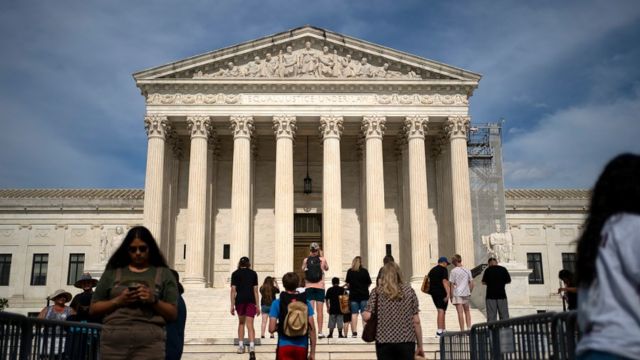Aiexpress – The Justice Department has urged the Supreme Court to issue an emergency order reinstating a federal anti-money laundering legislation while a lower court battle continues.
The Corporate Transparency Act (CTA), enacted in 2021, will oblige millions of businesses to publish personal information about their owners by next month.
The law is on pause following a sequence of rulings that began this month, when a federal district court in Texas determined that the act likely exceeded Congress’s power and stopped its enforcement. Following many whiplash rulings, the 5th U.S. Circuit Court of Appeals denied the federal government’s attempt to reinstate the statute while it appealed.
In an emergency motion filed Tuesday, the Justice Department requested the Supreme Court to reinstate the law while the government continues its appeal in the 5th Circuit, arguing that the law is constitutional and that the lower court overreached.
“Contrary to the district court’s decision, the Commerce Clause and Necessary and Proper Clause empower Congress to adopt the CTA’s reporting requirements,” a letter from the Justice Department stated.
By next month, the bill would require millions of small businesses to disclose information about their owners, such as dates of birth and addresses, to the Financial Crimes Enforcement Network (FinCEN), a Treasury Department unit dedicated to combating money laundering and other crimes. Violations might result in civil and criminal sanctions.
The Biden administration contended that, at the very least, the lower court overreached by banning the statute worldwide, rather than merely for the parties that sued.
The right breadth of such injunctions has been a recurring issue, and the government’s new filing raises the possibility that the Supreme Court would promptly take up the new case to lay out the ground rules for lower courts. If the justices agree, the case would have far-reaching repercussions for cases challenging federal legislation.
“This case, in its current posture, would provide an ideal vehicle for addressing the lawfulness of universal relief if the Court concludes, in light of the persistence of the practice and the ample percolation of the relevant issues, that the time has come to resolve the propriety of such relief,” the U.S. solicitor general wrote in the filing.
In May 2024, four entities susceptible to the new law — a guns dealer, an information technology firm, a dairy farm, and the Libertarian Party of Mississippi – sued over the law, along with the owner of the tech company and the National Federation of Independent Business (NFIB).
“At a minimum, the injunction should be stayed except to the extent it protects respondents and the members of NFIB identified in the complaint,” according to the emergency petition.
The CTA has faced numerous challenges, but courts have mostly sided with the government in the other cases.












Leave a Reply